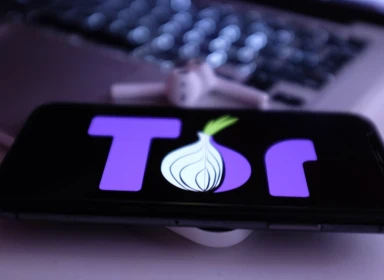
Introduction
In recent years, the global surge in cybercrime has highlighted the urgent need for robust international cooperation. Fraudsters exploit technology to craft sophisticated schemes, targeting victims across continents. Nigeria, often unfairly stereotyped as a hub for internet fraud, has made significant strides in combating this global menace. The Economic and Financial Crimes Commission (EFCC) has undertaken decisive actions, most notably through two major operations in Abuja and Lagos. These breakthroughs not only expose the mechanics of international fraud but also underscore Nigeria's commitment to justice and accountability.
The Abuja Raid: Unveiling a "Hotel Review" Scam
On January 9, 2025, the EFCC conducted a successful operation in Abuja, arresting 105 individuals implicated in a newly emerging internet fraud scheme. The syndicate comprised four Chinese nationals and 101 Nigerians, all operating under the guise of a legitimate business. Dubbed the "Hotel Review" scam, this intricate operation targeted victims—primarily Europeans—promising them financial rewards for participating in fake online reviews.
How the Scheme Worked
The fraudsters lured victims by offering $5 for their first hotel review and $10 for subsequent reviews. As trust grew, victims were persuaded to make hotel bookings, often requiring deposits into cryptocurrency wallets. These wallets were purportedly linked to high-yield investment opportunities. However, once the funds were deposited, victims found their access blocked, losing their investments entirely. The sophistication of this scam underscores the global reach of modern fraud techniques and the vulnerability of digital platforms.
Seized Evidence
During the raid, EFCC operatives confiscated 100 compact workstations used to perpetrate the crimes. These devices held key evidence, including communication logs, false identities, and transaction records, which are crucial for tracing the syndicate’s operations beyond Nigeria.
The Lagos Operation: A Massive Network Unraveled
A month before the Abuja raid, on December 10, 2024, the EFCC carried out another large-scale operation, arresting 792 suspects in Lagos. This raid targeted a seven-story building in Victoria Island, known as the Big Leaf Building. The building housed a sprawling fraud syndicate, orchestrating cryptocurrency investment and romance scams on a global scale.
Inside the Fraud Factory
Investigations revealed that the syndicate was managed by 148 Chinese nationals, 40 Filipinos, and individuals from Kazakhstan, Pakistan, and Indonesia. These foreign masterminds trained Nigerian accomplices in deception techniques, equipping them with computers, fake profiles, and templates for phishing attacks. The ground floor of the building resembled a corporate office, while the upper floors served as operational hubs, complete with over 500 SIM cards and high-end computers for fraudulent activities.
Targeting Victims Globally
The syndicate primarily targeted citizens of the United States, Canada, Mexico, and Europe through social media platforms like WhatsApp, Instagram, and Telegram. Victims were encouraged to invest in a fake online platform, www.yooto.com, which required a $35 activation fee. Persuasive tactics, including romantic overtures and promises of high returns, were used to extract larger investments, which were then siphoned off by the organizers.
Global Implications of Cybercrime
These operations reveal the extensive global reach of cybercrime. While the perpetrators operated from Nigeria, the schemes were directed at victims across multiple continents, leveraging technology to erase geographical boundaries.
The Role of International Collaboration
The EFCC has worked closely with international law enforcement agencies to dismantle these networks. Advanced forensic tools were used to analyze seized devices, while intelligence-sharing enabled the identification of foreign collaborators. These partnerships underscore the importance of global unity in addressing the growing threat of cybercrime.
Technology: A Double-Edged Sword
The same technology that facilitates fraud also provides law enforcement with tools for detection and intervention. Digital forensics, AI-powered threat analysis, and blockchain tracing have become indispensable in the fight against cybercrime. These advancements not only expose fraudsters but also help secure justice for victims.
Debunking Stereotypes: Nigeria's Fight for Reputation
For decades, Nigeria has been associated with internet fraud, often labeled as a hub for "419 scams." However, the recent EFCC operations reveal a more complex picture. Many of these schemes are orchestrated by foreign nationals who exploit Nigeria’s reputation to conceal their activities. The arrests in Abuja and Lagos challenge these stereotypes, showcasing Nigeria’s proactive efforts to hold criminals accountable and restore its global image.
Challenges in Combating Cybercrime
Despite significant successes, the fight against cybercrime remains fraught with challenges:
- Sophistication of Schemes: Fraudsters continually evolve their tactics, making it difficult for law enforcement to stay ahead.
- Lack of Awareness: Many victims fall prey due to a lack of understanding about common online fraud tactics.
- Cross-Border Jurisdictions: Coordinating international investigations is complex, requiring streamlined protocols and trust between agencies.
EFCC's Roadmap for the Future
To sustain its momentum, the EFCC is implementing a multi-faceted strategy:
- Capacity Building: Training local law enforcement in advanced investigative techniques and digital forensics.
- Public Awareness Campaigns: Educating citizens about common scams and preventive measures.
- Strengthening Partnerships: Enhancing collaboration with international bodies, including Interpol and Europol, to address cross-border cybercrime.
- Policy Reforms: Advocating for stronger cybersecurity legislation and enforcement mechanisms.
Voices from the Field
The EFCC’s chairman, Ola Olukoyede, emphasized the need for a united front against cybercrime, stating:
"Foreign nationals have exploited our nation’s reputation, but our efforts show that Nigeria is no haven for fraudsters. We are committed to restoring trust and ensuring justice."
Meanwhile, the acting Zonal Director of the Lagos EFCC, Michael Wetkas, highlighted the role of the media in supporting these efforts:
"Public awareness is crucial. By sharing information, we empower individuals to protect themselves and assist in exposing these crimes."
Conclusion
The Abuja and Lagos operations represent a turning point in Nigeria’s battle against cybercrime. By dismantling sophisticated fraud networks, the EFCC has demonstrated its capacity to protect victims and hold perpetrators accountable. However, the fight is far from over. As technology evolves, so do the tactics of cybercriminals. Only through sustained efforts, international collaboration, and public vigilance can we hope to counter this global menace effectively.





Comments 0